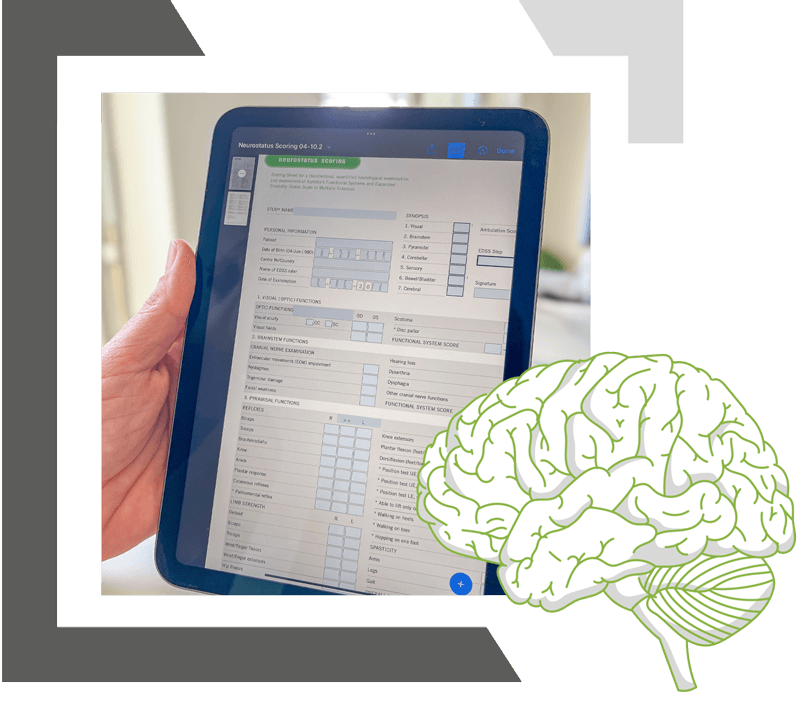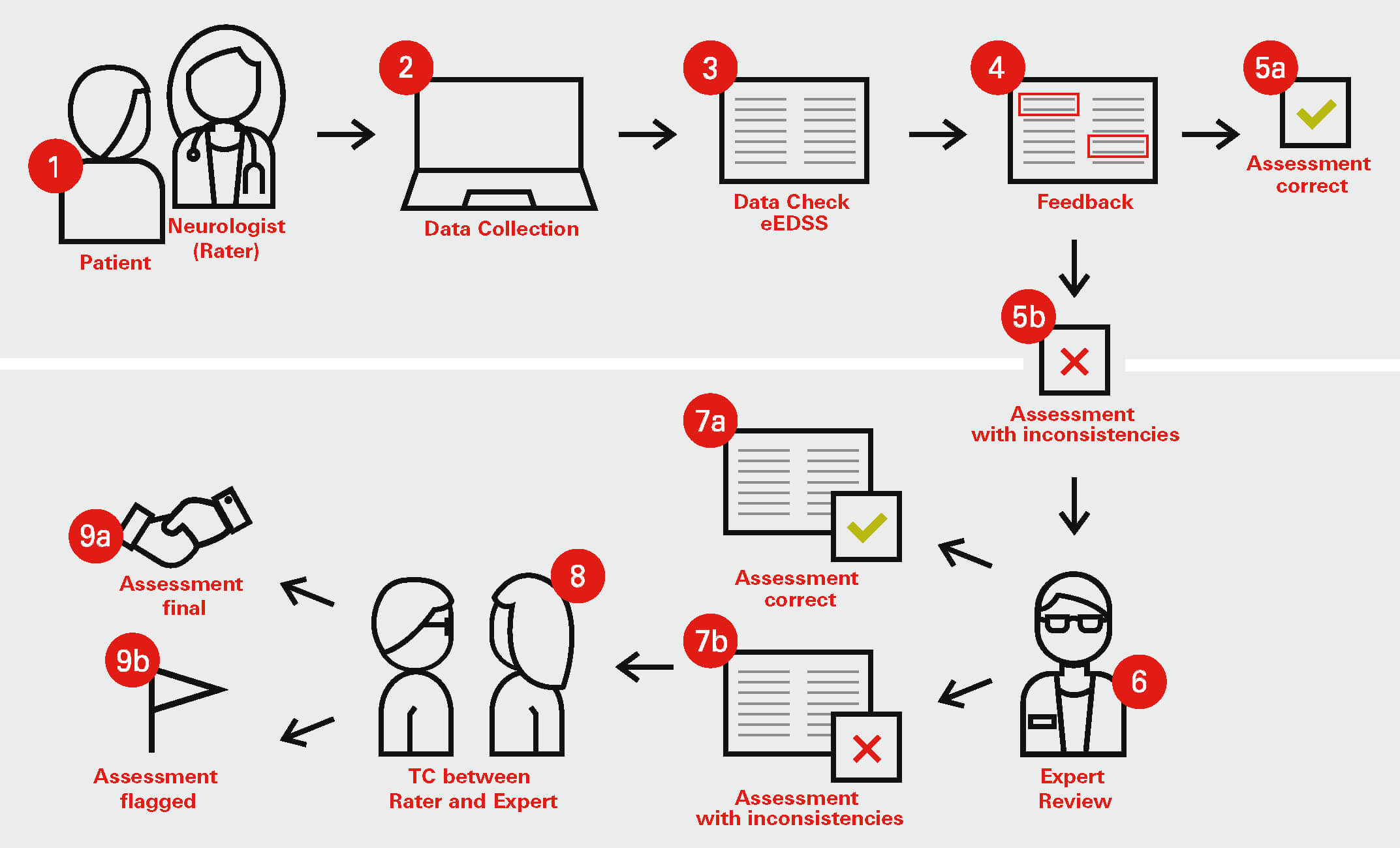
What is the electronic Neurostatus-EDSS
(Neurostatus e-EDSS)?
The Neurostatus-eEDSS provides a digital capture and documentation as well as an algorithm-based consistency check and automated real-time feedback on the Neurostatus-EDSS assessments data. Specifically, the algorithm detects inconsistencies in the scores made by raters, i.e. combinations of scores that do not match the rules described in the Neurostatus-EDSS Definitions. Assessments labelled as inconsistent can then be reviewed by the team of Neurostatus-EDSS experts who support the rater in their resolution.
What are the benefits of the Neurostatus-eEDSS in clinical or academic trials?
2. Retrospective analysis
Depending on the studies’ requirements and complexities, the eEDSS can also be provided through the Neurostatus-UHB in-house digital solutions. The inhouse Neurostatus-eEDSS service provides a retrospective consistency check and automatic calculation of the EDDS step based on the Functional System Scores (FSS) and the Ambulation Score (AS) (synopsis check only). This inhouse aims to support smaller or academic studies not able to use the full eCOA solution, who still wish to reduce variability and calculation errors and to improve the quality of their Neurostatus-EDSS study data.




